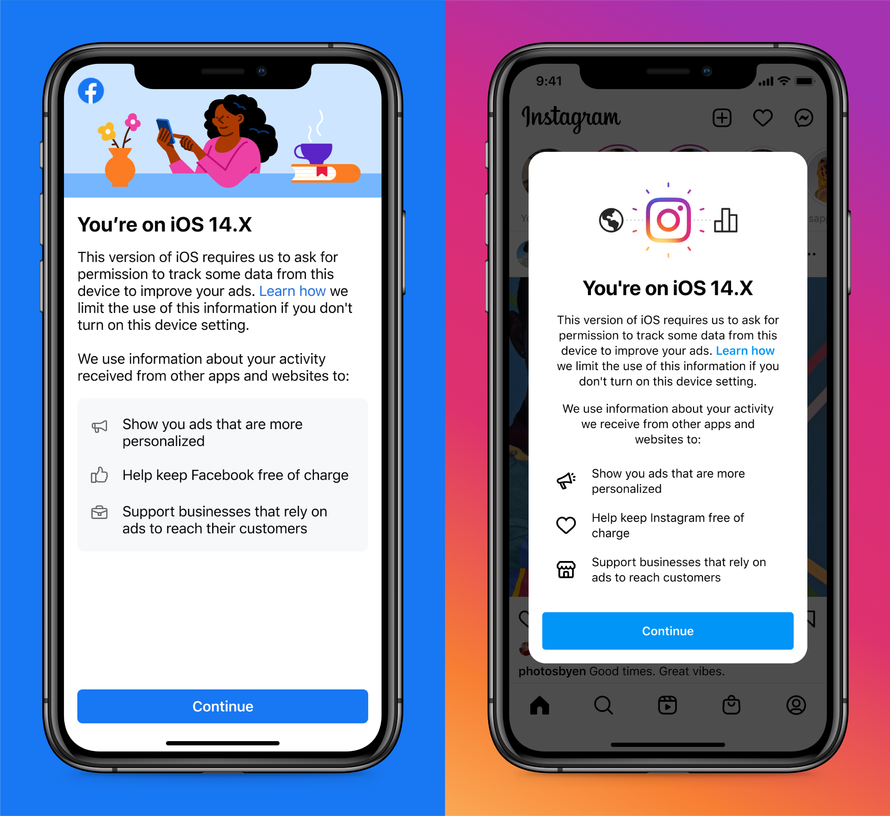iOS 14.5: Controversial iPhone update released by Apple
Apple's iOS 14.5 is now available to download from Apple.
The update brings a range of features, including the ability to unlock the iPhone using an Apple Watch when wearing a mask, and the option to have Siri play music from other services. But the most contentious of them is the introduction of App Tracking Transparency, or ATT.
That changes the information that developers and advertisers are able to gather on users as they move between different apps on the phone. It is a change that has already put Apple in conflict with developers like Facebook and looks set to change both advertisers' businesses and consumers' relationship with them.
In the past, users have been tracked using a unique code in each phone, which can be watched as it moves between various apps and tied back to that one device. Now, developers will have to explicitly ask for permission to do that, and most users are expected to refuse.
Once the change goes into effect, opening up an app such as Facebook will show a prompt that Facebook wants to track you across different apps and websites. Users will be asked to either ask the app not to track them or allow it.
The software also has an option in the settings that allows users to stop allowing any apps to even ask for tracking permissions. That same setting also notes that “Apps that don’t ask permission may still ask to track you”.
Though the feature will be enabled with iOS 14.5, it was actually rolled out with the introduction of iOS 14. That means that some users may already have seen the pop-up from developers, and see information on ATT despite not running the latest software – though they will have to update to the new version of the operating system before they receive the full protections.
As with all iPhone and iPad operating system updates, iOS 14.5 can be downloaded from the Settings app on the phone, by clicking into the "General" menu. Devices will also prompt their users about automatic installs over time.
Apple says that the change is part of its commitment to privacy, and its belief that it is a human right. The company's software chief, Craig Federighi, told The Independent last year that the feature arose from its belie in privacy as a "core value" that could be tracked back to Steve Jobs.
But advertisers, and most notably Facebook, have argued that the . Facebook also accused Apple of misleading customers about the real aim of the feature – arguing that it was attempting to protect its own profits rather than privacy - and said that it was a result of Apple moving "away from innovative hardware products to data-driven software and media".
Soon after the update was announded, Facebook updated a blog post – first published in December – in which it claimed that the introduction of ATT would hurt small businesses. The update said that it would comply with the update but that it would show an information page that encourages users to allow the tracking before asking for permission.
Facebook said that the decision to opt in or out will “happen through a prompt designed by Apple that discourages people from giving their permission, and provides little detail about what this decision means”. It said that it was adding the “educational screen before presenting Apple’s prompt to help people make an informed decision about how their information is used”.
It also shared an image of how that information page would look, including a message that says tracking is used to ensures ads are “more personalised” and that it “helps keep [Facebook and Instagram] free of charge”.

Facebook said that Apple had permitted the inclusion of “additional context” alongside the pop-up to opt in to tracking, and pointed to an information page on Apple’s website which says that information can be shown to users “so long as you are transparent to users about your use of the data in your explanation”.
Apple did not immediately respond to a request for comment from The Independent on whether Facebook’s screen would be allowed.
Apple had initially announced the feature along with the rest of iOS 14, during its WWDC event last June. It was initially expected to release it with that operating system in September, but delayed it into 2021 as a result of pushback from developers.
The company says that it has now overcome those problems, after discussions with those who were looking to work with the new framework. That has included the introduction of new technologies that allow advertisers to track the success
Join our commenting forum
Join thought-provoking conversations, follow other Independent readers and see their replies
Comments
Bookmark popover
Removed from bookmarks